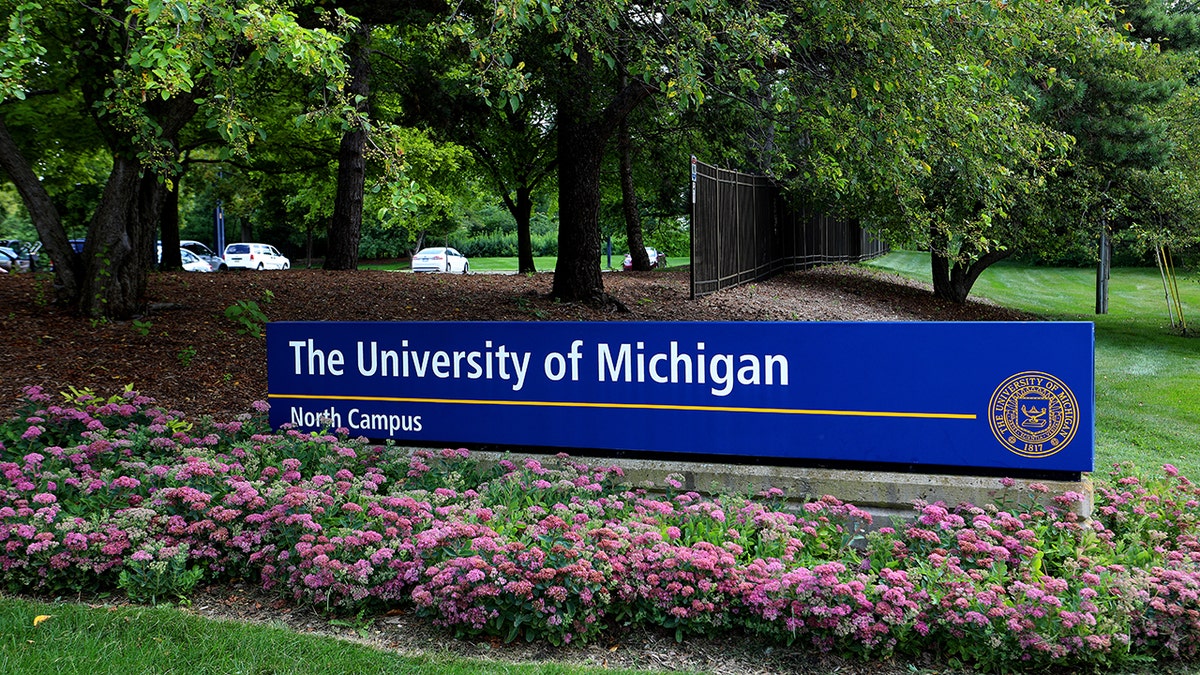Fox News Flash top headlines for June 26
Fox News Flash top headlines are here. Check out what's clicking on Foxnews.com.
The University of Michigan is giving a group nearly $2 million in research grant funding to examine "the historical and current state of the U.S. carceral system."
According to the University of Michigan website, the $1,999,834 grant was given to a group that is planning a project around "confronting the Carceral State" and will partner with community organizations "to center the voices and lived experiences of incarcerated people and criminalized communities."
The project was given grant funding as part of the university's "Meet the Moment Research Initiative" that focuses on faculty research and scholarship to "address today’s most pressing societal issues."
The project is titled "Confronting the Carceral State: Criminalization, Confinement and Control."

The University Of Michigan North Campus signage at the University Of Michigan in Ann Arbor, Michigan on July 30, 2019. (Raymond Boyd/Getty Images)
A press release states that the project will examine "the historical and current state of the U.S. carceral system, including mass incarceration, police brutality, wrongful convictions, racial criminalization and immigrant detention."
"The team will partner with community organizations and impacted individuals to center the voices and lived experiences of incarcerated people and criminalized communities, bring transparency and democratic accountability to law enforcement, and "change the narrative" around the carceral state," the project description states.
WOMEN ARE BEING ERASED BY WOKESTERS INTENT ON REPLACING THEM WITH 'BIRTHING PERSONS'

The Burton Memorial Tower stands on the central campus March 24, 2015, at the University of Michigan in Ann Arbor, Michigan. Built in 1936, the 120' tower is named for University President Marion Leroy Burton, who served from 1920-1925. (Photo by Robert Nickelsberg/Getty Images)
A press release describing the project states that it is an effort to "dismantle systemic racism" as well as "promote social justice."
A total of nearly $4.5 million was given to other projects such as "Measuring, Modeling and Mapping Microplastics in the Atmosphere of Michigan."
Anne Curzan, dean of the University of Michigan College of Literature, Science, and the Arts, said in a press release that the research will address pressing societal issues.
CLICK HERE TO GET THE FOX NEWS APP
"There are many challenges our society is facing right now that have long-term effects for generations to come. With this research initiative, we can address these issues in a way that will encourage and empower people to make positive, purposeful change," Curzan said.










































